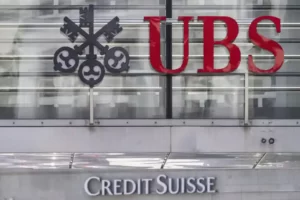
In a significant development, UBS (UBS) has reached an agreement to pay $1.44 billion in penalties to settle allegations of fraud related to the sale of residential mortgage-backed securities. The settlement, announced by the Department of Justice, is a result of actions stemming from the financial crisis. This article delves into the details of the settlement, its implications, and what it means for UBS and the financial industry.
Understanding the Allegations
The allegations against UBS revolve around the sale of residential mortgage-backed securities, complex financial instruments that played a role in the 2008 financial crisis. The government alleged that UBS was aware that a substantial number of loans supporting these securities did not adhere to the established loan underwriting guidelines. These guidelines are designed to assess the borrowers’ ability to repay their loans, a critical factor in maintaining the stability of the financial system.
Additionally, UBS was accused of having knowledge that the property values linked to a significant portion of the securitized loans were not adequately supported. This means that the loans were backed by properties that were overvalued or improperly assessed. Furthermore, it was alleged that many of these loans violated consumer protection laws, indicating a disregard for the legal rights and safeguards put in place to protect borrowers.
Historical Context
The civil action that led to this settlement dates back to 2018, with UBS’s alleged misconduct centered around the years 2006 and 2007. These years are crucial because they coincide with the peak of the housing bubble that eventually burst, triggering the global financial crisis. During this period, financial institutions engaged in risky lending practices and bundled these risky loans into complex securities, which contributed to the collapse of the housing market and subsequent economic turmoil.
Settlement and Accountability
UBS’s decision to settle for $1.44 billion underscores the importance of accountability in the financial industry. The settlement amount is not just a financial penalty; it serves as a statement that financial institutions cannot evade responsibility for their actions. This settlement represents a response to those who thought they were above the law, as mentioned by US Attorney Ryan Buchanan for the Northern District of Georgia.
UBS’s Role in the Financial Crisis
The significance of UBS’s conduct lies in its contribution to the financial crisis that had a profound impact on millions of Americans and the global economy. The misrepresentation of vital information to investors and the undermining of trust in public markets were detrimental consequences of UBS’s actions. The acknowledgment of this role and the subsequent settlement demonstrate the gravity of the situation and emphasize the need for transparency and ethical behavior in the financial sector.
Future Implications
This settlement has broader implications for the financial industry as a whole. It serves as a reminder that accountability will continue to be sought when financial institutions fail to provide accurate and reliable information to investors. Regulatory bodies and legal authorities are committed to upholding the integrity of financial markets and ensuring that such misconduct does not recur.
Conclusion
The $1.44 billion settlement between UBS and the Department of Justice marks a significant step towards accountability in the aftermath of the financial crisis. The allegations of fraud in the sale of residential mortgage-backed securities and the subsequent settlement highlight the consequences of actions that undermine the stability of the financial system. As the industry moves forward, the lessons learned from this case should serve as a reminder of the importance of transparency, compliance, and ethical conduct in safeguarding the integrity of financial markets.

Hi, I’m deoravijendra, a professional content writer and digital marketer with 5 years of SEO experience. I’m passionate about crafting compelling content and optimizing online presence for maximum impact.